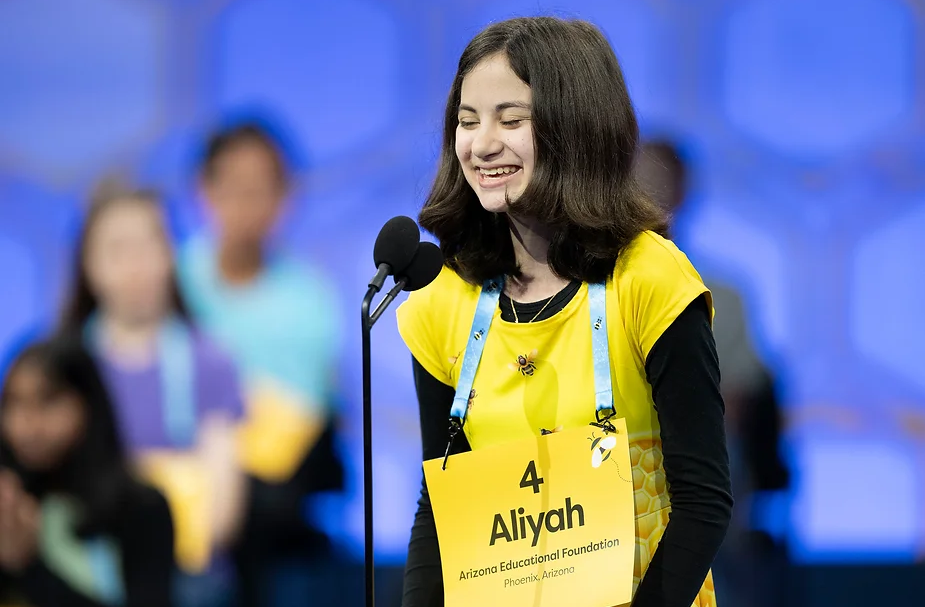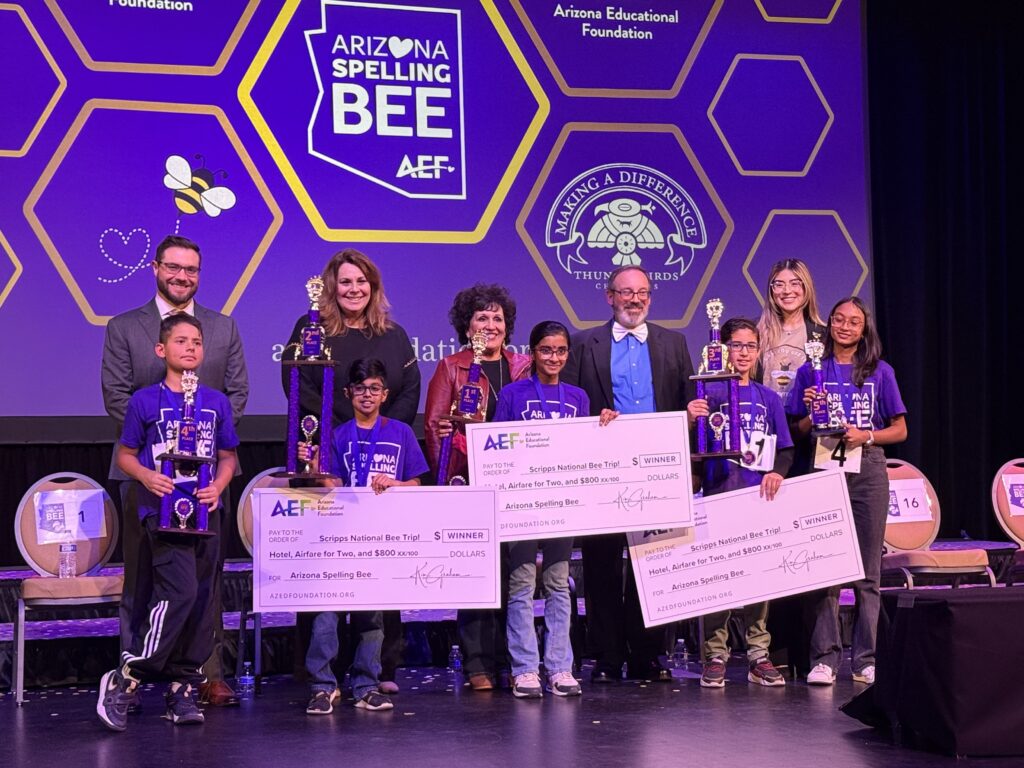Arizona Spelling Bee: Improving Literacy for Arizona Students


Can You Spell ‘I-M-P-A-C-T’? How Spelling Bees Improve Literacy
Two former Arizona Spelling Bee champion brothers share how the competition improves literacy.
The Behling brothers, who both lay claim to the title of Arizona Spelling Bee champion, are clearly gifted in the art of letters and words. The brothers both also competed and excelled at the Scripps National Spelling Bee, which AEF has been a state sponsor of for almost 30 years. Here, they discuss the valuable lessons they learned from the process.
Spelling Success
Marcus Behling won the Arizona Spelling Bee in 2015 as an eighth grader with the word “barometer.” He placed an impressive 11th at the Scripps National Spelling Bee in Maryland that year. His brother, Mitchell, won the Arizona Spelling Bee in 2011 — he also won the Chandler Unified School District spelling bee in 2009, 2010 and 2011. “This was a very rewarding experience for me, as I had competed multiple years unsuccessfully and this was my last chance — I won as an eighth grader,” says Mitchell Behling, an audit and assurance senior at Deloitte who holds bachelor’s and master’s degrees in accountancy from Brigham Young University. “It was very satisfying to see that my years of hard work studying had paid off, and I was very grateful for the opportunity that I had to represent Arizona at the Scripps National Spelling Bee.”
The Clear Benefits of Spelling Bees
Despite the rise of spell check and AI in today’s world, spelling bees continue to thrive. In fact, approximately 11 million children participate in the National Spelling Bee circuit annually — and just 245 advance to the Scripps National Spelling Bee. To do so, they must win their class, school, district and regional/state bees.
The benefits of spelling bee competitions at school, district, state and national levels are clear — vocabulary development, enhanced reading capabilities and improved pronunciation are just a start. Spelling bees also help build focus and concentration, confidence, stress management skills and public speaking abilities. Bees are not just about memorizing spellings of words — students must learn to pronounce them correctly, know the root word origins and definitions, and be able to use them correctly in a sentence.
“Spelling bees taught me study skills and gave me increased patience for studying, which translated to higher grades in school,” Mitchell says. “Additionally, the spelling bees helped my ability to communicate — both verbally and in writing — and helped with my public speaking. It helped expand my vocabulary and meant that I didn’t (and still don’t) misspell words very often. This has helped me in my written communication both in school and in my current career.”
Both brothers espouse the benefits of their Arizona Spelling Bee experience on many levels. “The process taught me to study well and to work hard, and those have both been very valuable to my education and career,” says Marcus Behling, a graduate research assistant in the Brigham Young University mechanical engineering department. Marcus earned bachelor’s and master’s degrees in mechanical engineering and is currently working toward his Ph.D. in the same field.
The Scripps National Spelling Bee takes place in late May each year. The Arizona Spelling Bee finals are held in March, and sponsorships for this long-running state contest are available.

Support the Bee
For companies who want their brand associated with literacy and reading, sponsoring the Arizona Spelling Bee is a great way to show support.



